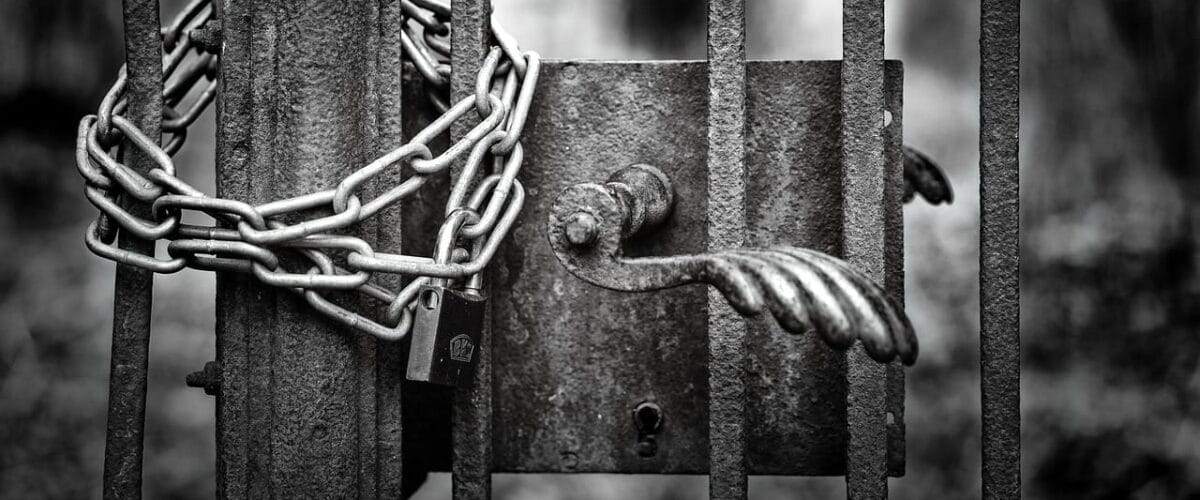It’s usually around 4:00 p.m. when it hits: an animalistic hunger that craves a Mexican restaurant, a bowl of linguini, and a Mexican restaurant that serves linguini. Now, this isn’t a daily desire I’m talking about, thank goodness. (My heart and dress pants couldn’t take it.) But it’s the salivating desire that regularly consumes me on any day of fasting.
Fasting has always presented itself to me as “good idea,” in the same way that dentists recommend flossing twice a day. It wasn’t until a friend pointed out that Jesus never said “if” you fast, but when—with specific instructions:
When you fast, do not look somber as the hypocrites do, for they disfigure their faces to show others they are fasting. Truly I tell you, they have received their reward in full. But when you fast, put oil on your head and wash your face, so that it will not be obvious to others that you are fasting, but only to your Father, who is unseen; and your Father, who sees what is done in secret, will reward you (Matthew 6:16-18 NIV).
(Thank goodness He says this, too. I’d rather see Instagram photos of cappuccinos and highlighted Bibles than of baggy eyelids any day).
Dying to the Flesh
Theologian Richard Foster defines fasting as “the voluntary denial of a normal function for the sake of intense spiritual activity.” This idea can be interpreted in various ways, seeing as daily omissions can pertain to anything the Lord might want us to put in a time-out: social media, secular music, television. These individual sacrifices provide quality time with the Lord that otherwise might not be available. However, there is something very tangible, very carnal, very intimate about denying something from our bodies.
“It is written, ‘Man shall not live by bread alone, but by every word that comes from the mouth of God,’” (Matthew 4:4 NIV).
I don’t know if there’s any other spiritual assessment that tests us on this theology quite like fasting. It forces us to physically deny bread and choose the Word. It forces us to redirect our appetite and find satisfaction in His presence. It forces us to choose Jesus’s presence.
When I first heard this, I felt my flesh snarl “What kind of Good Father asks us to skip dinner?” This response, no matter how small, provides direct reflection as to what I think is mine. I need to consistently remember that nothing is mine— not even this body. All of my meals are generously gifted, this temple is the Lord’s, and what it needs at the end of the day is not up to me. Fasting isn’t a cruel request for us to be in pain. Instead, fasting allows me to voluntarily look into the eyes of my Provider rather than into the eyes of His provision.
Fasting Cuts Out Multitasking
Of course, there are times when we can do both. We can pray during meals and discuss sermon notes over brunch. But I remember struggling at the end of a three-day fast once, and I caved at the end, assuring Him, “I’ll eat and keep praying like this, I promise!”
I gobbled up food and tried to keep praying with the same amount of passion. After a few hours, however, I was nearly embarrassed by how much my zeal and connection depleted because my attention had partially shifted elsewhere.
When you fast, your entire body channels its hunger into prayer, and in those moments of whole-body craving, your focus is solely on God. Your prayer isn’t distracted by your surroundings. Your pleas aren’t sedated by satisfied taste buds. The flesh’s fangs die every time I choose the Creator over linguini—because I’ve made my preference. I’ve chosen my best friend.
Jesus > Lucky Charms
“So don’t worry about these things, saying, ‘What will we eat? What will we drink? What will we wear?’ These things dominate the thoughts of unbelievers, but your heavenly Father already knows all your needs,’” reads Matthew 6:31-33 NLT. “Seek the Kingdom of God above all else, and live righteously, and he will give you everything you need.”
Jesus is not looking to starve us into devotion on a daily basis. He’s not looking to manipulate us. He understands that food is a necessity and a part of our survival. Yet food can’t be our soul’s priority. Our hunger can feel so salivating sometimes that the flesh scrambles around in the dark, ready to lick up bread crumbs off the floor. “Even celery will do!” it screams.
But in those moments when we deny the flesh of something it doesn’t need, it’s like giving Heaven VIP access into our soul’s storage closet. It feels like I am irreversibly close to Him because He matters more to me than my own body. And that very humility gives Him full permission to take a toothbrush to my heart.
Any of us can be tempted to fast for the wrong reasons: to punish our bodies, to lose weight, to join a club that says “this is what you do if you love Jesus.” We need to understand that fasting isn’t about anything other than entering Heaven’s uninterrupted office hours. It’s like sitting down with a friend for dinner, and we’ve put down our phones to focus on the conversation.
Don’t you see, my friends? Fasting isn’t a punishment. It’s a tool for communication and intimacy. It brings me to Him in loving weakness where I find His voice to be all that my body needs.
Feature Image by Pexels.com







Comments are closed.